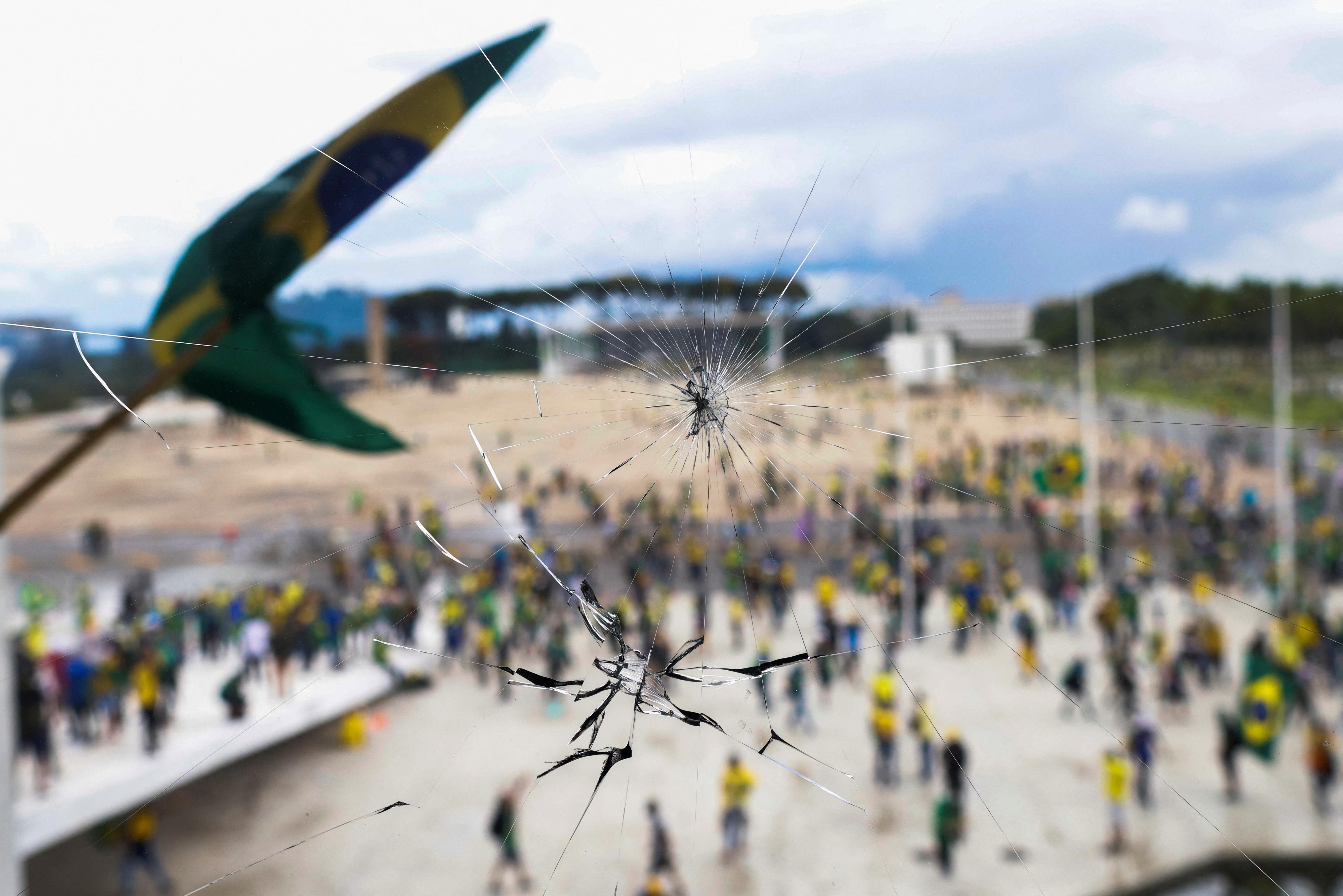We warned you this might happen …
In Brazil's answer to Jan. 6, hundreds of supporters of far-right former President Jair Bolsonaro stormed the country's parliament, presidential palace, and Supreme Court on Sunday. The mob marched from army HQ in Brasília towards the heart of Brazilian politics, the Praça dos Três Poderes (Three Powers Plaza), where they broke police lines to enter the buildings housing the legislative, executive, and judiciary powers while being tear-gassed by cops.
Huh? Didn’t Bolsonaro already concede the 2022 election? Technically he didn’t, although he did agree in vague terms to a transition of power to his nemesis: the left-wing Luiz Inácio “Lula” da Silva — a nuance that fell on deaf ears among Bolsonaro’s most diehard fans.
Indeed, thousands of the former president’s loyalists who refused to accept his defeat by Lula have been camping out for weeks in Brasília and other cities calling for a military coup presumably to reinstate Bolsonaro. Meanwhile, as Lula was sworn in for his third term as president exactly one week ago, Bolsonaro was spotted eating KFC in Florida after skipping the inauguration to spend new year’s eve at Mar-a-Lago with his buddy, former US President Donald Trump.
Like Jan. 6 in the US, it was all (mostly) over in a matter of hours. Lula immediately declared a "federal security intervention" in the capital district — a state of emergency that gives his government special powers to restore law and order in Brasília until the end of the month. The security forces retook control of the three buildings briefly occupied by the protesters, and at least 400 people have been arrested.
But unlike in America, it seems that members of the security and intelligence apparatus were in cahoots with the rioters. In a televised national address, a visibly angry Lula blamed his predecessor for encouraging the uprising and accused local cops of being either ill-willed or incompetent for having let the mob breach the security perimeter.
The president also vowed to go after the rioters and their financial backers. (The first head to roll was Brasília's pro-Bolsonaro governor, suspended by the Supreme Court for 90 days despite firing his security chief, a former Bolsonaro minister who's reportedly now in Florida.)
And what about Bolsonaro? It took him a while, but hours after the crisis ended he fired off a series of tweets to condemn the violence, deny he had anything to do with it, and note that the invasion of public buildings "crossed the line."
What happens next? Once the dust (quite a bit of it) settles on Brazil's ransacked capital, expect Lula's government to launch a full-scale investigation into what happened, who was behind it, and whether Bolsonaro played any role. And whatever the outcome, it'll likely further fan the flames of political polarization in Brazil.
